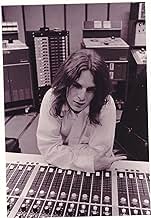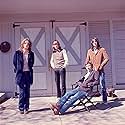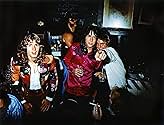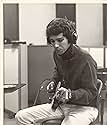NOTE IMDb
7,1/10
1,5 k
MA NOTE
Ajouter une intrigue dans votre langueBig Star: Nothing Can Hurt Me is a feature-length documentary film about the dismal commercial failure, subsequent massive critical acclaim, and enduring legacy of pop music's greatest cult ... Tout lireBig Star: Nothing Can Hurt Me is a feature-length documentary film about the dismal commercial failure, subsequent massive critical acclaim, and enduring legacy of pop music's greatest cult phenomenon, Big Star.Big Star: Nothing Can Hurt Me is a feature-length documentary film about the dismal commercial failure, subsequent massive critical acclaim, and enduring legacy of pop music's greatest cult phenomenon, Big Star.
- Réalisation
- Scénario
- Casting principal
Lester Bangs
- Self
- (images d'archives)
Chris Bell
- Self
- (images d'archives)
The Box Tops
- Themselves
- (images d'archives)
Panther Burns
- Themselves
- (images d'archives)
Alex Chilton
- Self
- (images d'archives)
Steve Cohen
- Self - U.S. Congressman
- (images d'archives)
The Cramps
- Themselves
- (images d'archives)
Avis à la une
Greetings again from the darkness. The best filmmakers can be described as visual storytellers. However, what can we expect from a film if the story has no real climax or even a definitive ending? Well if the story is early 70's band Big Star and if the filmmakers are co-directors Drew DeNicola and Olivia Mori, and Producer Danielle McCarthy, the answer is an incredibly interesting and enthralling tale of how sometimes the universe just doesn't line up the way it should.
Mythical stories involve such things as unicorns and the lost city of Atlantis. It's tempting, though incorrect, to label Big Star as the mythical great band of the 1970's. In fact, they were all too real. For the past 40 years, their influence has worked its way through the musical world and is obvious in the works of such bands as R.E.M. and The Replacements ... just as the influence of The Beatles, The Byrds, The Kinks and more can be heard in the songs of Big Star. The mystery and confounding question is why did the beautiful music of Big Star never "make it" to the big time like those others?
This documentary is a technical and structural and visual and auditory marvel. It captures and holds our attention just like any other well made historical drama would. A doc on The Rolling Stones or Bruce Springsteen would revel in the big time success achieved or the legendary live performances or recording sessions. Instead, with Big Star, we get a much more personal look at the creative genius of its two leaders: Chris Bell and Alex Chilton. They are described as flashing comets passing in the sky. Their all too brief time together produced something special that, still to this day, deserves to be heard. Their tragic personal stories need to be told. This film does both things very well. A large part of the Big Star catalog is heard throughout, and the abundance of meaningful interviews paints a clear picture of the band and its members.
One would be challenged to name any artist or creative endeavor that has been more critically acclaimed, yet commercially unsuccessful as Big Star. It absolutely makes no sense ... except for the cursory explanation given to the record labels: Ardent Records and Stax Records, and their ultimate failure in gaining retail distribution and radio airtime. Could it really be as simple as horrendous business execution? At this point, none of it really matters. The real interest ... the real story ... is the personal insight provided by lone surviving band member Jody Stephens, record producers John Fry (Ardent founder) and Jim Dickinson, and of course, the brother and sister of Chris Bell.
If you are asking yourself why you have never heard any music by a band that occupies 3 slots in Roling Stones' 500 Greatest Albums of all time, I encourage you to seek out the songs ... or pay attention the next time you are watching the opening of "That 70's Show". Yes, that is Cheap Trick doing a cover of a Big Star song. There is much to be gained from seeing this documentary and discovering Big Star ... even all these years later.
Mythical stories involve such things as unicorns and the lost city of Atlantis. It's tempting, though incorrect, to label Big Star as the mythical great band of the 1970's. In fact, they were all too real. For the past 40 years, their influence has worked its way through the musical world and is obvious in the works of such bands as R.E.M. and The Replacements ... just as the influence of The Beatles, The Byrds, The Kinks and more can be heard in the songs of Big Star. The mystery and confounding question is why did the beautiful music of Big Star never "make it" to the big time like those others?
This documentary is a technical and structural and visual and auditory marvel. It captures and holds our attention just like any other well made historical drama would. A doc on The Rolling Stones or Bruce Springsteen would revel in the big time success achieved or the legendary live performances or recording sessions. Instead, with Big Star, we get a much more personal look at the creative genius of its two leaders: Chris Bell and Alex Chilton. They are described as flashing comets passing in the sky. Their all too brief time together produced something special that, still to this day, deserves to be heard. Their tragic personal stories need to be told. This film does both things very well. A large part of the Big Star catalog is heard throughout, and the abundance of meaningful interviews paints a clear picture of the band and its members.
One would be challenged to name any artist or creative endeavor that has been more critically acclaimed, yet commercially unsuccessful as Big Star. It absolutely makes no sense ... except for the cursory explanation given to the record labels: Ardent Records and Stax Records, and their ultimate failure in gaining retail distribution and radio airtime. Could it really be as simple as horrendous business execution? At this point, none of it really matters. The real interest ... the real story ... is the personal insight provided by lone surviving band member Jody Stephens, record producers John Fry (Ardent founder) and Jim Dickinson, and of course, the brother and sister of Chris Bell.
If you are asking yourself why you have never heard any music by a band that occupies 3 slots in Roling Stones' 500 Greatest Albums of all time, I encourage you to seek out the songs ... or pay attention the next time you are watching the opening of "That 70's Show". Yes, that is Cheap Trick doing a cover of a Big Star song. There is much to be gained from seeing this documentary and discovering Big Star ... even all these years later.
As a voracious consumer of "Rock Docs," this one left me flat. The story is told in such a way that it is nearly impossible to follow (unless you are a Memphis super fan, I guess). It ambled along following every little thread until I just didn't care anymore.
As with "Mr. Blue Sky" (the Geoff Lynne doc), the superlatives flow like water. After a while, they just become meaningless.
And most important of all, I didn't leave this film and rush straight to ITUNES to download their work. If the music is as good as the interviewees bleated on about; they were not able to convey it within the film itself.
As with "Mr. Blue Sky" (the Geoff Lynne doc), the superlatives flow like water. After a while, they just become meaningless.
And most important of all, I didn't leave this film and rush straight to ITUNES to download their work. If the music is as good as the interviewees bleated on about; they were not able to convey it within the film itself.
I went into the theater expecting a rock-n-roll documentary about a group I'd never heard of. I agree with many of the reviewers here that the film starts slowly and appears to want to convince me that this extraordinary ensemble just didn't get the break they needed. The point was pounded home time and again but, not being an big fan of rock-n-roll I felt the need of more evidence, until the story began to break about the individuals in the band and the emotional content of their work together and their lives. It was as if they all--with the exception of Chris Bell--assumed they'd get what they deserved, and too bad if that was less than it might be. Here is where the story begins to become intriguing, but the payoff is not complete.
I am the same age as the Beatles, roughly, and bought their albums and the mythology that went along with them. I admit I didn't know much more about rock-n-roll than that. If you'd ask me what the band who produced "The Letter" was I would probably have said The Monkees. In fact, the lead singer on that number was Alex Chilton, who became the central member of Big Star.
In the q-and-a after the showing of BIG STAR, the director revealed that much of the angst endured by Chris Bell had to do with homosexuality, and there is an area of silence around this facet his life when you are interviewing his family and remaining friends. The nugget of information would be crucial to the narrative of the band and explain to a degree why the film didn't fully work for me. I could tell Bell was difficult, tormented, and probably a genius--but what his demons were, and what his relationship with Chilton was, was not even hinted at. He seemed petulant and jealous that Chilton became the star of the group, but the level of disillusion, betrayal and pain didn't seem to come from anywhere.
The film made me think; it informed me of much I didn't know about the Memphis scene and rock-n-roll in the 70s, when I was off into folk and then into old-time pop music and jazz. I parted company with the mainstream but not to the degree Big Time did. Nevertheless it is interesting to learn about their path. Now that I know there is a great deal more to their story, I would love to hear that as well.
I am the same age as the Beatles, roughly, and bought their albums and the mythology that went along with them. I admit I didn't know much more about rock-n-roll than that. If you'd ask me what the band who produced "The Letter" was I would probably have said The Monkees. In fact, the lead singer on that number was Alex Chilton, who became the central member of Big Star.
In the q-and-a after the showing of BIG STAR, the director revealed that much of the angst endured by Chris Bell had to do with homosexuality, and there is an area of silence around this facet his life when you are interviewing his family and remaining friends. The nugget of information would be crucial to the narrative of the band and explain to a degree why the film didn't fully work for me. I could tell Bell was difficult, tormented, and probably a genius--but what his demons were, and what his relationship with Chilton was, was not even hinted at. He seemed petulant and jealous that Chilton became the star of the group, but the level of disillusion, betrayal and pain didn't seem to come from anywhere.
The film made me think; it informed me of much I didn't know about the Memphis scene and rock-n-roll in the 70s, when I was off into folk and then into old-time pop music and jazz. I parted company with the mainstream but not to the degree Big Time did. Nevertheless it is interesting to learn about their path. Now that I know there is a great deal more to their story, I would love to hear that as well.
This is a documentary about a 70's Memphis band. They have good critical support but never gains popular support. They struggle with the business and Big Star eventually fades into oblivion only to become a cult band which nobody has ever heard of and only the coolest music geeks can lay claim to. I myself don't know the band. I have never heard of their music. The only familiar song is 'In the Street' which was remade into the theme of 'That 70's Show'. I see some of their interesting famous fans. It would nice to showcase them earlier in the doc giving them needed praises. That's the normal practice to hype up the band. By putting it in the back, the intensity isn't there. If these famous artists love them, then I'm more motivated to know them. About their music, they sound good but none of it is that catchy. They sound professional. They sound sincere. They sound artful. There is an indie sensibility that would become more popular today. My biggest issue with the documentary format is that I couldn't tell who was from the band. None of them have great charisma in the present day. The two important voices in the band are no longer with us. It's tough to get a hold of their personalities when most of it is told in second-hand. It's the difference between a faded photograph and being in the same room. It has some fascinating behind-the-scene aspects. It would probably make for a great biopic movie where actors can give these people great personalities. The old footage can only give glimpses of the old days. It's told in a manner of faded memories. It's artistic but it's never visceral. It's sad but it's not enthralling. This is a good band who never reached the mountain top. There's a good story somewhere here.
10cebelina
Lovely, poignant and beautiful the story of Big Star is fraught with the inescapable trappings of life that both manage to bind and also free us. There is already a wonderful review by David Ferguson. His review sums up much of what you'd actually expect to find on the liner notes of a DVD compilation release of this movie. And he's spot on. My review won't add or be any better. In the end my review will only add a bit of the haunting beauty and power that was Big Star and that lingers with us. A black diamond glimpse into the souls of not only Big Star but each and every one of us. A cautionary song/tale that sums up much of what I think the movie offers: "Take care not to hurt yourself Beware of the need for help You might need too much And people are such Take care, please, take care Some people read idea books And some people have pretty looks But if your eyes are wide And all words aside Take care, please, take care. This sounds a bit like goodbye In a way it is I guess. As I leave your side. I've taken the air. Take care, please, take care. Take care, please, take care." Wm Alexander Chilton
Le saviez-vous
- GaffesWhen listing current artists that were influenced by Big Star, Elliott Smith is seen introducing a Big Star cover song on the Jon Brion Show with the date 1996. The show was not recorded until 2000.
Meilleurs choix
Connectez-vous pour évaluer et suivre la liste de favoris afin de recevoir des recommandations personnalisées
Détails
- Date de sortie
- Pays d’origine
- Sites officiels
- Langue
- Aussi connu sous le nom de
- Большая звезда: Ничто не может причинить мне боль
- Lieux de tournage
- Sociétés de production
- Voir plus de crédits d'entreprise sur IMDbPro
Box-office
- Montant brut aux États-Unis et au Canada
- 105 998 $US
- Week-end de sortie aux États-Unis et au Canada
- 15 096 $US
- 7 juil. 2013
- Montant brut mondial
- 105 998 $US
- Durée1 heure 53 minutes
- Couleur
- Rapport de forme
- 1.78 : 1
Contribuer à cette page
Suggérer une modification ou ajouter du contenu manquant

Lacune principale
By what name was Big Star: Nothing Can Hurt Me (2012) officially released in Canada in English?
Répondre



























